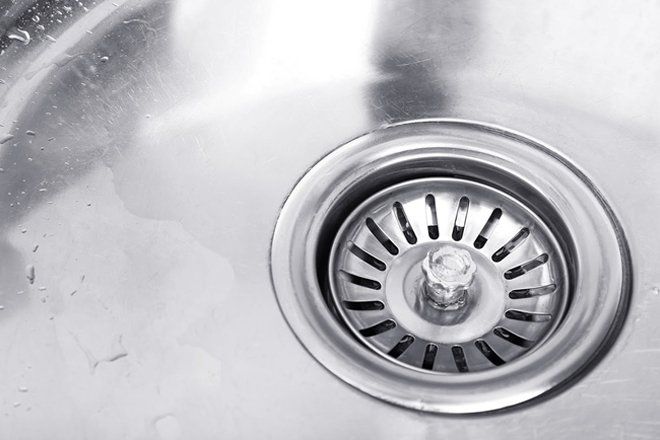3 Things You Should Keep Out of Your Septic Tank
You rely on your septic tank to remove wastewater from your home, but do you ever think about what else ends up in your tank as you go about your daily business? Discover three things you should never flush down the toilet or rinse down the drain and how they can harm your septic system.
1. Excess Food Waste
How often do you have a little extra on your plate after a meal is over? Although it might seem easier to rinse food debris into your garbage disposal, the fact of the matter is that ground-up food can be extremely hard on your septic tank and drainfield.
The fine particulates present in ground food can easily float in the effluent layer of the tank and exit into the drainfield, which clogs the pores that help to filter the wastewater. For this reason, septic professionals recommend pumping your septic tank annually if you use a garbage disposal. However, if you decide not to use a disposal, then you may only need to pump every three years.
Garbage disposals can also be hard on the pipes that run from your home to the system since some food swells and causes clogs when exposed to water. For example, starchy foods like pasta tend to absorb water rapidly, putting you at a higher risk for troublesome blockages.
To ward off problems, try to keep food waste from entering your septic tank. Instead of cleaning off your plate in the sink, scrape your plate off into the wet trash, and then focus on using sink areas for rinsing purposes only.
2. Strong Cleaning Products
You might love fresh-smelling sinks, tubs, and showers, but unfortunately, the same products you use to clean, deodorize, and de-clog can wreak havoc on the delicate bacterial balance inside of your septic system.
Your septic tank relies on beneficial bacteria to break down organic wastes, allowing fluids to run through your system properly. Unfortunately, if cleaners like bleach, anti-bacterial soaps, and even drain cleaner run down your drains, you might be left with a system that doesn't operate like it should.
Chemical drain cleaner is especially damaging, with research showing that a single teaspooncan kill all of the beneficial bacteria in a single tank. To put that number into perspective, it would take two gallons of bleach to do the same kind of damage to eubacteria levels.
Fortunately, you can prevent septic system clogs by focusing on keeping harsh chemicals from washing down the drain. When you clean your home, only use septic-safe cleaning products, and avoid anti-bacterial laundry chemicals. Never clean sinks, toilets, or tubs with straight bleach. If you have a drain clog, hire a plumber to snake the pipe instead of using chemical drain cleaner.
3. Wet Wipes
With the resurgence of wet wipes in bathrooms across the United States, an uptick in septic problems has occurred — especially since many versions aren't designed to break down in septic tanks. Cities across the nation have reported higher costs for removing wet wipes from main sewer lines, while homeowners with septic tanks run the risk of permanently damaging their own septic systems.
If your family uses wet wipes instead of toilet paper, teach people to toss used wipes into a nearby garbage pail instead of flushing them down the toilet. If you can't make the transition, focus on finding a wet wipe that is septic-safe, since these versions will break down properly.
For expert help with your septic tank, contact Southern Sanitary Systems Inc. In addition to offering septic tank pumping and repairs, our professionals can also help with plumbing inspections and emergency service. By looking after your septic tank, you can keep your home clean, fresh, and functional.








